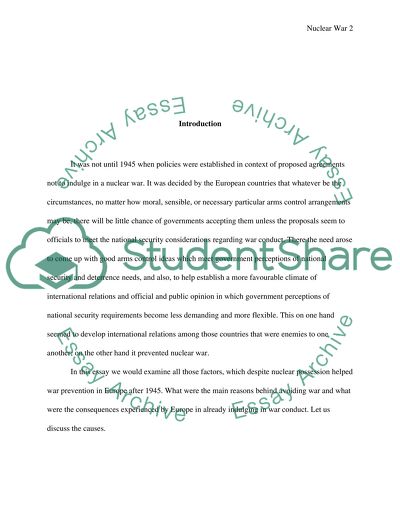Cite this document
(“Did the possession of nuclear weapons prevent war in Europe after 1945 Essay”, n.d.)
Did the possession of nuclear weapons prevent war in Europe after 1945 Essay. Retrieved from https://studentshare.org/politics/1528901-nuclear-war
Did the possession of nuclear weapons prevent war in Europe after 1945 Essay. Retrieved from https://studentshare.org/politics/1528901-nuclear-war
(Did the Possession of Nuclear Weapons Prevent War in Europe After 1945 Essay)
Did the Possession of Nuclear Weapons Prevent War in Europe After 1945 Essay. https://studentshare.org/politics/1528901-nuclear-war.
Did the Possession of Nuclear Weapons Prevent War in Europe After 1945 Essay. https://studentshare.org/politics/1528901-nuclear-war.
“Did the Possession of Nuclear Weapons Prevent War in Europe After 1945 Essay”, n.d. https://studentshare.org/politics/1528901-nuclear-war.


